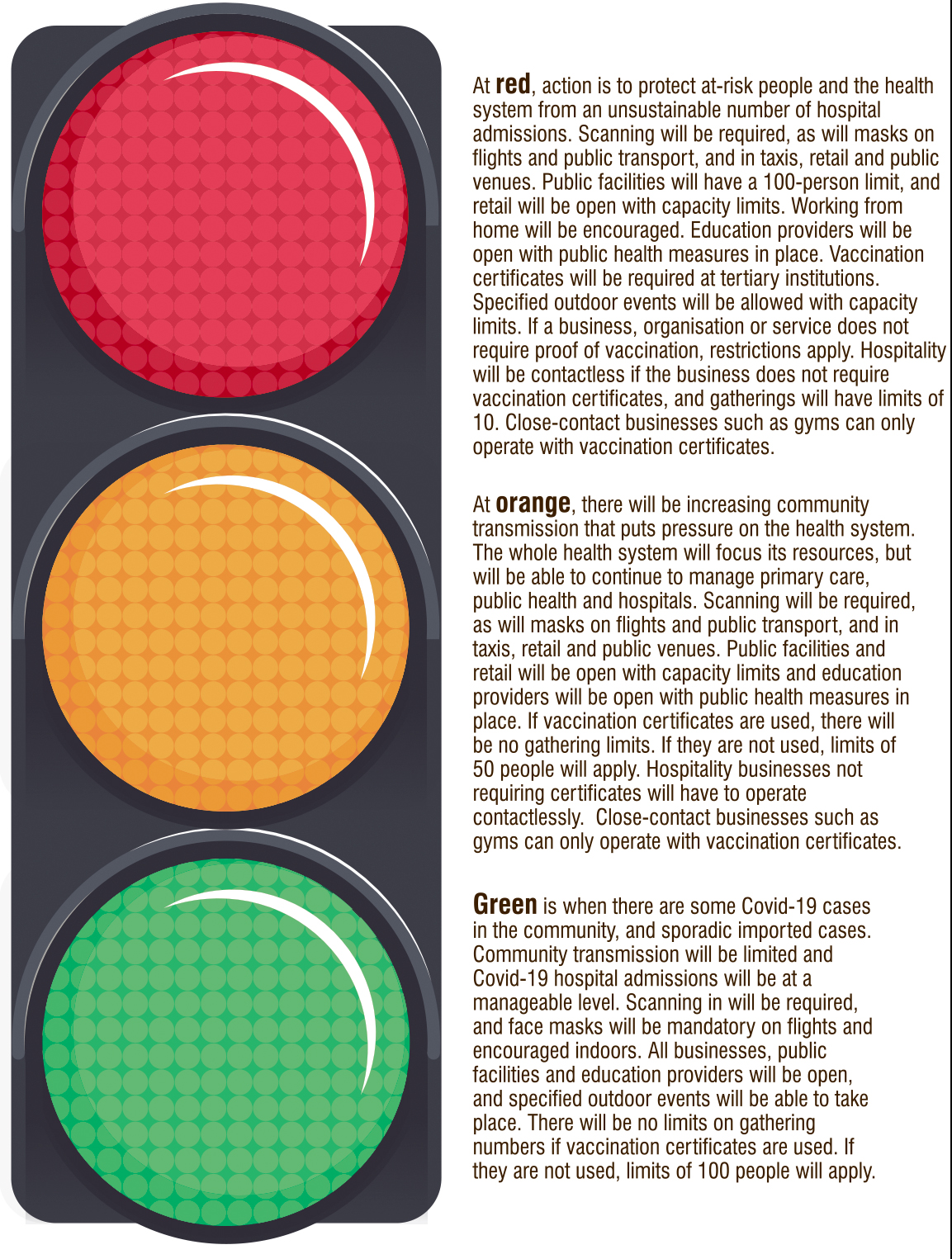New Zealand is poised to move to the red traffic light setting within 24 to 48 hours of transmission of the Covid-19 variant Omicron in the community.
Here are some ways to have your household and support networks ready in the event of self-isolation, being transferred to a managed isolation and quarantine (MIQ) facility, or becoming ill and needing hospital care.
Of course, the best way to prepare for a community outbreak is to make sure you're fully vaccinated and have received the booster dose, if eligible.
While the Omicron variant is more contagious than Delta, studies show it causes milder disease than previous strains of Covid-19.
Omicron in the community
Today it was confirmed that a case in Palmerston North has the highly contagious variant, and it's likely a second Auckland Airport worker is infected with it.
Three cases of Omicron have already been confirmed in Auckland.
Prime Minister Jacinda Ardern confirmed this week there will be no lockdowns when Omicron enters the community, but the country would move from the orange setting on the traffic light system to red.
According to latest modelling almost 2000 Omicron cases a day - 10 times the Delta peak - are expected in the Auckland region in just six weeks in the event of an outbreak.
But it's important to remember stockpiling and panic buying everyday supermarket items is not necessary. If you live at home alone, or know someone who does, make sure adequate support systems are organised in advance of possible self-isolation.
Everyone who tests positive for Covid-19 needs to stay at home or alternative accommodation, or be moved to an MIQ facility.
If you contract Omicron you will need to isolate for at least 10 days, or 14 days if you are not fully vaccinated, and be symptom-free for 72 hours.
The Covid-19 traffic light system

Have a plan and share it
If someone tests positive for Omicron, everyone living in the same dwelling as the case will have to stay at home for the entire time they are isolating.
Families in the same household are encouraged to have a meeting so everyone, including children, knows what to do if someone gets sick or has to go to hospital.
Create a map of your home and mark out shared spaces, isolating areas and a sanitising station with the intent of reducing the spread of Covid-19 as much as possible.
If you are infected, it's best to limit time in shared spaces, and to use your own household items and take care of your own laundry.
Make a list of your family information, including names, ages, NHI numbers, any medical conditions and medication people regularly take.
Make plans if you have shared custody of a child or dependant, and check in with any relevant schools, employers and in-home carers.
Medical supplies
The Ministry of Health suggests having pain relief such as Ibuprofen and Panadol to hand, as well as a kit with hand sanitiser, masks, tissues and cleaning equipment such as gloves, rubbish bags and cleaning products.
It's also helpful to have medicines that will help with the symptoms of Covid-19, such as throat lozenges, cough medicine and ice blocks.
If you need particular medicines, your doctor or local pharmacy can arrange having prescriptions delivered to your home.
Self-isolating at home can be tedious, so make sure to stock up on games, books, or any activity that you enjoy and will help to pass the time.
Support networks
Think about how to let people know if you're heading into self-isolation, such as your neighbours and wider family, and how people can help you with contactless drop-offs - eg texting before they arrive, or leaving goods at an agreed entrance.
If you are living alone, contact friends, family or a local organisation that can drop off food or supplies if you need to self-isolate.
Have someone in mind that you can organise regular catch-ups with either online or via phone in the event of self-isolation.
Staying mentally healthy during self-isolation is extremely important. There are helpful support networks such as the Mental Health Foundation, Te Whare Tapa Whā and helpline 1737. There are also a variety of financial support options.
Write down instructions for anyone who may need to keep your house ticking over if you get sick and require hospital care - these could for looking after pets, paying bills and watering plants.
A Ministry of Health dedicated contact person will check up on anyone who is isolating at home.
• Further information can be found on the Unite against Covid-19 website.













